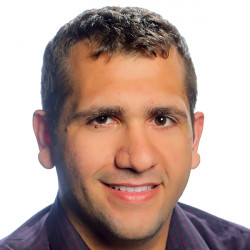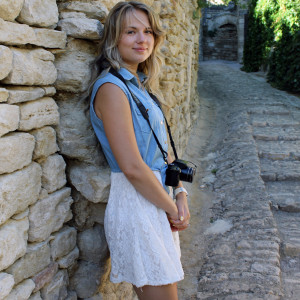New Employee Profiles - October 2016
October 1, 2016
Matthew Zahr, 2016 Alvarez Fellow

Matthew Zahr
As Berkeley Lab’s 2016 Alvarez Fellow, Matthew Zahr will be developing efficient, projection-based methods for solving optimization problems constrained by partial differential equations in the Computational Research Division (CRD) Math group.
“I am interested in further developing these methods to address some of the problems of interest at Berkeley Lab, such as those in combustion and material science,” says Zahr. “I’m also developing new methods for resolving shocks in compressible conservation laws, topological optimization and solving problems with multiple spatial scales.”
Before joining Berkeley Lab as an Alvarez Fellow, Zahr was a Department of Energy Computational Science Graduate Fellow (CSGF) pursuing his Ph.D. in Computational and Mathematical Engineering at Stanford University. Upon meeting Berkley Lab Mathematician Dan Martin at the annual CSGF meeting, Zahr decided to spend the summer after his first year of graduate school at the Lab.
That summer, he worked with Berkeley Lab’s Per-Olof Persson on high-order Discontinuous Galerkin (DG) Methods for Computational Fluid Dynamics (CFD). Over the next few years he continued to work with Persson and others in Berkeley Lab’s Mathematics Group, including Jon Wilkening, on projects that were a cross-over between his thesis research—efficient Partial Differential Equation (PDE) constrained optimization—and their main research directions—high-order DG methods and time-periodic solutions of PDE. As a CSGF fellow, he also took advantage of opportunities to collaborate with researchers at other DOE National Labs, like the Sandia National Labs in California and New Mexico, which allowed him to expand into the field of uncertainty quantification.
Before Stanford, Zahr was an undergraduate student at UC Berkeley pursuing a Bachelors degree in Civil and Environmental Engineering. The summer before graduation, he participated in the Army High Performance Computing Research Center’s (AHPCRC) Summer Institute where he worked on a computational mechanics research project with a professor and his graduate students. He enjoyed the experience so much that he spent his last year at UC Berkeley strengthening his math skills, and then decided to do his graduate work in the applied/computational math program at Stanford specifically to work with the professor from his AHPCRC program.
Originally from Modesto, California, Zahr likes to hike, lift weights, run and swim in his free time. In winter, he enjoys skiing and snow camping in Tahoe.

Anastasiia Butko
Anastasiia Butko, CRD
As a new postdoctoral fellow in CRD’s Computer Science Department, Anastasiia Butko will study alternative emerging technologies for future energy-efficient supercomputers. Her research interests fall in the general area of computer architecture, particularly high performance computing, multi- and many-core systems, memory infrastructure, associated parallel programming and architecture simulation techniques.
A native of Chernihiv, Ukraine—which is located about 60 kilometers outside of Chernobil—Butko earned a Masters degree in Design of Electronic Equipment from the National Technical University of Ukraine ‘Kyiv Polytechnic Institute.’ Because she participated in a double diploma program, Butko also simultaneously got a Masters degree in Microelectronics from the University of Montpellier in France.
After earning her Master degrees, she continued her education in France eventually completing a PhD in “High Level Exploration of Computing Accelerator Architecture and Associated Programming Models” at LIRMM (Montpellier Laboratory of Informatics, Robotics and Microelectronics). Because her PhD research was funded by the European Mont-Blanc project, which aims to design an exascale supercomputer, Butko got extensive experience working in computer science, but also collaborating on research projects with industrial and academic partners.
In her free time, she enjoys listening to audio books while jogging and reading books when she’s not running.
About Computing Sciences at Berkeley Lab
High performance computing plays a critical role in scientific discovery. Researchers increasingly rely on advances in computer science, mathematics, computational science, data science, and large-scale computing and networking to increase our understanding of ourselves, our planet, and our universe. Berkeley Lab’s Computing Sciences Area researches, develops, and deploys new foundations, tools, and technologies to meet these needs and to advance research across a broad range of scientific disciplines.







 Instagram
Instagram YouTube
YouTube